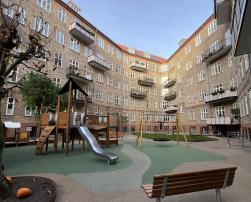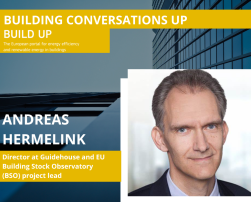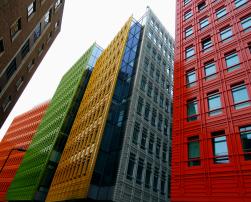
SUPERSHINE Project holds field visit to see energy democracy in action
The SUPERSHINE consortium gathered to continue the dialogue on energy efficiency and social innovation in housing. Building on SUPER-i's achievements, the partners explored how inclusive approaches can increase the impact of energy efficiency initiatives while addressing social and environmental challenges.

Old but gold: timber and clay in modern construction
The Think Earth project explores using timber and clay in modern construction to reduce emissions, enhance sustainability, and increase wood reuse from 10% to 90%.

Why the built environment needs a circular economy
The construction industry must shift from a linear to a circular economy, promoting reuse and recycling to reduce waste, cut costs, and support sustainability goals.

2024... in experts conversations
Experts from across Europe shared valuable insights on advancing energy efficiency and renewable energy in buildings. Here’s a recap of their contributions to BUILD UP in 2024.

What is missing for a circular transition in the built environment? MIT study investigates
The construction sector's shift from a 'take-make-dispose' model to a circular 'make-use-reuse' approach aims to reduce waste. MIT-led innovations, stakeholder support, and policy incentives are driving adoption.

Australian start-up launches trials for energy-efficient AC
Conry Tech is launching trials for its energy-efficient air conditioning technology, aiming to cut emissions by 40% in commercial buildings, with plans for wider deployment in Australia next year.

Andreas Hermelink: ‘Better data allowing better decisions could save billions of Euros in the decarbonisation of buildings’
Building conversations up with... Dr Andreas Hermelink, Director at Guidehouse and EU Building Stock Observatory (BSO) project lead.

Germany's effort to boost heat pump adoption for net-zero goals
Heat pump sales in Germany are declining due to consumer uncertainty, with widespread adoption of climate-neutral heating technologies needed to meet the country's 2045 net-zero target.

Transforming the built environment: insights from the 2024 UKGBC future leaders programme
The built environment's significant impact on carbon emissions and resources requires transformative change, with the UKGBC developing future leaders to overcome industry challenges and drive sustainability through leadership, innovation, and collaboration.

Urban resilience: key takeaways from COP29
COP29 focused on climate finance, carbon markets, and renewable energy to support urban resilience, but challenges remain in securing adequate funding and phasing out fossil fuels.